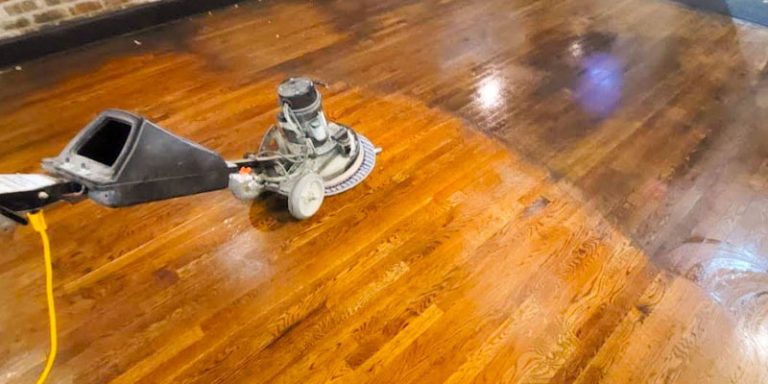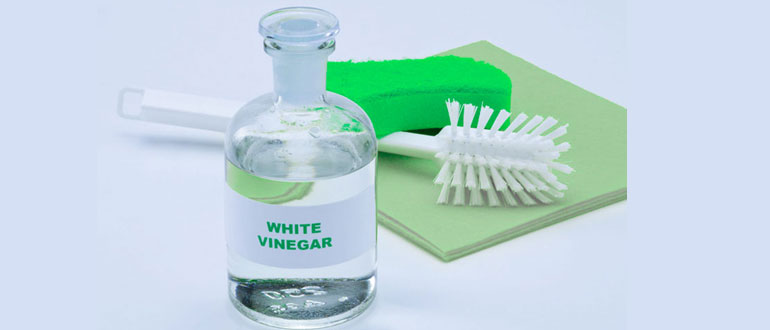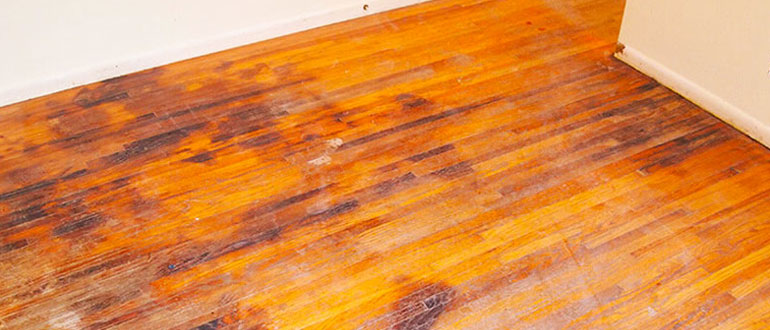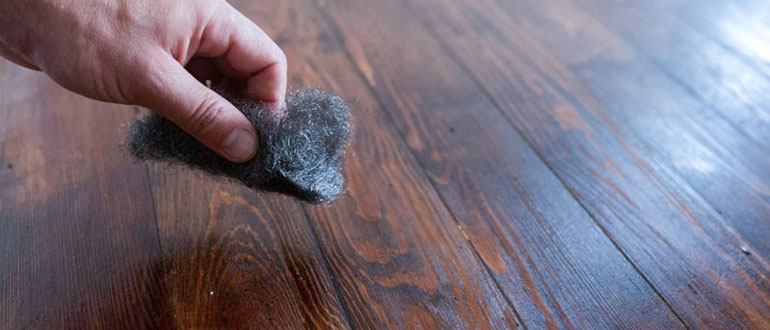Dark stains on hardwood floors can be hideous and difficult to remove. Whether they result from a spill, tracked-in dirt, or everyday wear and tear. These stains can ruin the look of your beautiful hardwood floors. Fortunately, there are various methods you can try to remove dark stains and restore your floors to their former glory.
Before tackling a dark stain on your hardwood floor, it is essential to assess the severity of the stain. Light stains, such as those from a small spill or a little tracked-in dirt, may be easily removed with gentle cleaning. Moderate stains may require a more robust cleaning solution and some scrubbing to remove them.
Deep or set-in stains may need the help of a professional hardwood floor cleaner and potentially even sanding and refinishing. In this article, we will walk you through a range of methods for removing dark stains from hardwood floors, depending on the severity of the stain. We will also offer tips for preventing future stains and maintaining hardwood floors.
Causes of Dark Stains on Hardwood Floors
- Spills: One of the most common causes of dark stains on hardwood floors is spills. Red wine, coffee, juice, and other liquids can quickly seep into the wood and leave behind unsightly stains if they are not cleaned promptly. These types of stains are often caused by accidental spills or by guests unaware of the potential damage that certain liquids can cause.
- Incorrect cleaning methods: Another common cause of dark stains on hardwood floors is the use of wrong cleaning methods. Oil-based soap or other abrasive cleaning products can strip the protective finish from the wood and leave it vulnerable to stains. Some cleaning products can also leave behind a residue that can darken the color of the wood over time.
- Foot traffic and wear and tear: Regular foot traffic and high-heel shoes or furniture with sharp or abrasive legs can cause scratches or scuffs on hardwood flooring that can become discolored over time. Additionally, if the floors are not properly sealed or finished, the wood fibers can absorb dirt and debris, resulting in dark stains that are difficult to remove.
- Environmental factors: Sunlight exposure, high humidity, and temperature fluctuation can make wood expand and contract. In the long term, this leads to cupping, gapping, and cracking in hardwood floors, which can end up with dark stains.
It’s essential to note that there are other possible causes of hardwood floors’ dark stains. However, homeowners and property managers might encounter some of the most common causes. With the correct identification of the reason, finding the appropriate solution to remove the stains will be easier.
Tools and Materials Needed
- White vinegar: White vinegar is a natural and effective cleaner that can help remove dark stains from hardwood floors. It is acidic and can help to break down and remove dirt, grime, and other stains from the surface of the wood.
- Baking soda: Baking soda is a gentle abrasive that can scrub away stains from hardwood floors. It is also alkaline, which helps to neutralize the acidity of stains caused by spills such as coffee or red wine. When combined with white vinegar, baking soda can create a powerful cleaning solution that can remove stubborn stains.
- Hydrogen peroxide: Hydrogen peroxide is another powerful cleaning agent that can remove dark stains from hardwood floors. It is a natural disinfectant that can kill bacteria and germs and help lighten discolorations caused by spills or foot traffic.
- Soft-bristled brush: A soft-bristled meeting is essential when cleaning hardwood floors. It can be used to gently scrub away stains and dirt without causing damage to the wood. A brush with a long handle will be easier to use and help you reach all floor areas.
- Microfiber cloth: A microfiber cloth is essential when cleaning hardwood floors. These cloths are highly absorbent and can be used to wipe up spills and dirt quickly and effectively. They are also gentle on wood surfaces so they won’t cause scratches or damage to the finish.
These are just tools and materials to remove dark stains from hardwood floors. You may also need other cleaning products or devices depending on the specific type of stain and the condition of the flooring.
Methods for Removing Dark Stains From Hardwood Floors
Method-1: White vinegar and baking soda
- Start by mixing a solution of equal parts white vinegar and water in a spray bottle.
- Spray the solution generously over the stain, and saturate the area thoroughly.
- Let the solution sit for a few minutes to work on the stain.
- Sprinkle baking soda over the stain, being careful not to overdo it, then use a soft-bristled brush to scrub the area gently.
- Use a microfiber cloth or mop to clean the cleaning solution and the stain.
- Repeat the process if the stain is not entirely removed.
Method-2: Hydrogen peroxide and baking soda
- Mix a solution of hydrogen peroxide and water in a spray bottle.
- Spray the solution generously over the stain, and saturate the area thoroughly.
- Sprinkle baking soda over the stain, then use a soft-bristled brush to scrub the area gently.
- Use a microfiber cloth or mop to clean the cleaning solution and the stain.
- Repeat the process if the stain is not entirely removed.
Method-3: Hardwood floor cleaner (if recommended by the manufacturer)
- Follow the manufacturer’s instructions for using the hardwood floor cleaner.
- Make sure to use the cleaner in a well-ventilated area and test it on an inconspicuous area of the floor before applying it to the stain.
- Apply the cleaner to the stain according to the manufacturer’s instructions.
- Use a soft-bristled brush to scrub the area gently.
- Use a microfiber cloth or mop to clean the cleaning solution and the stain.
- Repeat the process if the stain is not entirely removed.
It’s essential to remember that these are general methods to remove dark stains. Depending on the type and source of the stain, you may need a specific cleaning solution. Some stains caused by certain materials, such as pet urine, may require more aggressive cleaning methods.
Prevention and Maintenance
- Proper cleaning methods: The best way to prevent dark stains on hardwood floors is to clean them properly and regularly. Use a hardwood floor cleaner specifically designed for your type of floor, or make a solution of equal parts white vinegar and water. And use a microfiber cloth or mop to promptly wipe up spills and dirt. Avoid using water or steam cleaners, oil-based soaps, or abrasive cleaning products.
- Protect floors from future stains: To protect your hardwood floors from future stains, place area rugs or mats at the entrance of your home or in high-traffic areas, use furniture coasters or felt pads on the bottom of furniture legs, and encourage guests to remove their shoes before entering the house.
- Regular sealing or refinishing: Over time, the finish of hardwood floors can become damaged and worn, leaving the wood vulnerable to stains and discoloration. To protect your hardwood floors and maintain their beauty, consider having them professionally sealed or refinished every 3-5 years or as needed.
It’s essential to note that hardwood floors need regular maintenance. Depending on the level of traffic they get, and how they were finished, they may require different care plans, so it’s always best to check with the manufacturer’s instructions or consult a professional.
What Causes Dark Stains on Hardwood Floors?
A variety of things, including water damage, mold, mildew, and exposure to certain chemicals, can cause dark stains on hardwood floors on hardwood floors. In some cases, the stains may cause by a buildup of dirt and grime, while in other cases, they may result from a reaction between the wood and certain cleaning products.
If the stain causes by water damage, it is essential to address the moisture source and clean and dry the affected area as soon as possible to prevent mold or mildew from growing. If the stains are due to chemicals, it is essential to identify the chemical and avoid using it on your hardwood floors in the future.
Some common possible causes include:
Mold and mildew growth: mold can grow on hardwood floors that provide a dark and humid habitat. This can cause black stains on the floor.
Pet urine: Pet urine can cause dark stains on hardwood floors because it contains ammonia which can discolor the wood. If you do not clean pet urine immediately, it can soak the hardwood flooring, causing dark stains.
Sap stains: sap stains are typically blue or brown and can stain hardwood floors due to fungal growth. When timber falls and is in a moist environment, it can grow fungus, which can penetrate the wood or expand on the outside of the log.
Others: Pet mess, water spots, ink, blood stains, and food spillage are common causes of dark stains on hardwood floors, especially in kitchen areas.
The Most Common FAQs
Q: How do I determine the severity of a dark stain on my hardwood floor?
A: To determine the severity of a dark stain on your hardwood floor, try wiping it away with a damp cloth. If the stain comes off easily, it is likely to be light or superficial. It is likely a moderate or severe stain if it does not come off or only comes off with difficulty. You can also test a small, inconspicuous area with a cleaning solution to see how easily the stain comes up.
Q: Can I use vinegar to remove dark stains from my hardwood floors?
A: Vinegar can be an effective cleaning solution for removing moderate stains from hardwood floors. However, it is essential to use it in moderation, as excessive amounts of vinegar can damage the finish on your feet.
Q: Can I use a steam cleaner on my hardwood floors?
A: Using a steam cleaner on hardwood floors is generally not recommended, as the high heat and moisture can damage the wood. If you must use a steam cleaner, test a small, inconspicuous area and use it sparingly.
Q: Can I use a scrub brush or scrub pad on my hardwood floors?
A: Scrub brushes and pads can effectively remove moderate stains from hardwood floors, but it is essential to use a soft-bristled brush or a non-abrasive scrub pad to avoid damaging the wood.
Q: How do I remove a dark stain that has been on my hardwood floor for a long time?
A: Deep or set-in stains that have been on your hardwood floor for a long time may be difficult to remove. In these cases, it may be necessary to seek the help of a professional hardwood floor cleaner or to sand and refinish the floor.
Q: How can I prevent dark stains from forming on my hardwood floors?
A: To prevent dark stains from forming on your hardwood floors, try placing rugs in high-traffic areas to catch spills and tracked-in dirt. Wipe up spills immediately, and regularly clean and maintain your floors to prevent dirt and debris from accumulating.
Q: Can I use bleach to remove dark stains from my hardwood floors?
A: Generally, you should not use bleach on hardwood floors, as it can damage the wood and strip the finish. Instead, try using a mild cleaning solution or a mixture of vinegar and water.
Q: Can I use a commercial hardwood floor cleaner on my floors?
A: Commercial hardwood floor cleaners can effectively remove moderate stains. But it is essential to read the label and follow the instructions carefully. Some cleaners may not be suitable for certain types of wood or finishes. You should use avoid the wrong cleaner could damage your floors.
Q: How often should I clean and maintain my hardwood floors?
A: The frequency with which you clean and maintain your hardwood floors will depend on the level of traffic and the condition of your floors. Generally, it is a good idea to sweep or vacuum your floors regularly to remove dirt and debris and to clean them with a gentle cleaning solution or a commercial hardwood floor cleaner at least once a month.
Q: Can dark stains on my hardwood floors be prevented altogether?
A: While it is impossible to completely prevent dark stains from forming on your hardwood floors. By taking preventive measures such as placing rugs in high-traffic areas and wiping up spills immediately. Which can help reduce the risk of stains. Regular cleaning and maintenance can also help to prevent stains from forming.
Conclusion
In conclusion, Removing dark stains from hardwood floors can be challenging, but it is possible with the right approach. By assessing the severity of the stain and choosing the appropriate cleaning methods. You can restore your floors to their former beauty.
For light stains, a gentle cleaning solution may be sufficient. Moderate stains may require a more robust cleaning solution and some scrubbing to remove them. Severe stains may need the help of a professional hardwood floor cleaner or sanding and refinishing.
Remember to place rugs in high-traffic areas to prevent future stains, wipe up spills immediately. Additionally, you should regular clean and maintain your hardwood floors. With the proper care and attention, you can keep your hardwood floors looking their best for years to come.
You May Also Like to Read:



